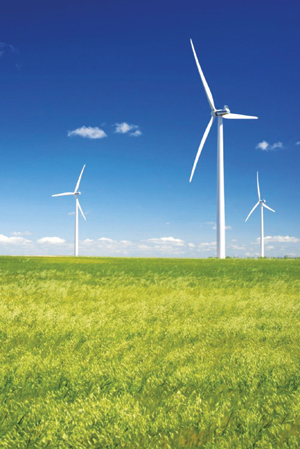
In an effort to create a more sustainable environment, admistrators at Storm King School recently agreed to receive its electricity through wind generated power.
There are no wind turbines on campus, but for the last month and a half Storm King School has been receiving 100 percent of its electricity through wind generated power, rather than through traditional sources.
“It’s part of the whole movement to make the campus greener,” said headmaster Paul Domingue. “We’re always looking for ways to be more sustainable, consume less and to make sure that which we consume has the least impact as possible on the environment.”
The transition was seamless as the boarding school still receives its power from the same grid it did before the switch. The only thing that’s changed is the supplier. The school signed on with Viridian Power Company and receives electricity which originates from United States wind farms including the High Sheldon Wind Farm in Strykersville.
The school has also enrolled in Viridian’s “Simple Right 100” natural gas plan that provides for 100 percent carbon offsets, i.e. the replacement of all the carbon it expends in producing the natural gas. One of the offsets includes planting trees in places such as the Amazon.
Without getting into specific numbers, assistant headmaster for finance Ray Hecht said switching to wind power wasn’t the cheapest alternative, but the school opted to spend the money in order to reduce its carbon footprint.
“Over time these prices will come down as more and more people draw from windmills and more windmills are constructed,” Hecht said. “This is an industry that’s growing rapidly. As more and more people jump on, that will give them the funding they need and the capital they need to build more.”
Converting to wind generated power isn’t the only thing the campus is doing to “go green.”
“The school has already implemented a series of ecologically beneficial changes including installing ultra-high efficiency natural gas furnaces and high efficiency lighting, introducing a campus-wide recycling program, and employing a landscaper that uses all natural fertilizers and pest control methods,” Domingue said. “Future campus construction plans incorporate building to certifiable standards. I think it’s incumbent on us as a 21st century school to do it, to teach our kids about it, to be consistent with the movement to create a sustainable planet.”
The school has even switched to a sustainable food service, offering only fresh, local, and natural foods. Most of the produce comes from a local, aquaponic farm which is organic.
Domingue said the school will continue to jump on sustainable opportunities as they present themselves in the future.
